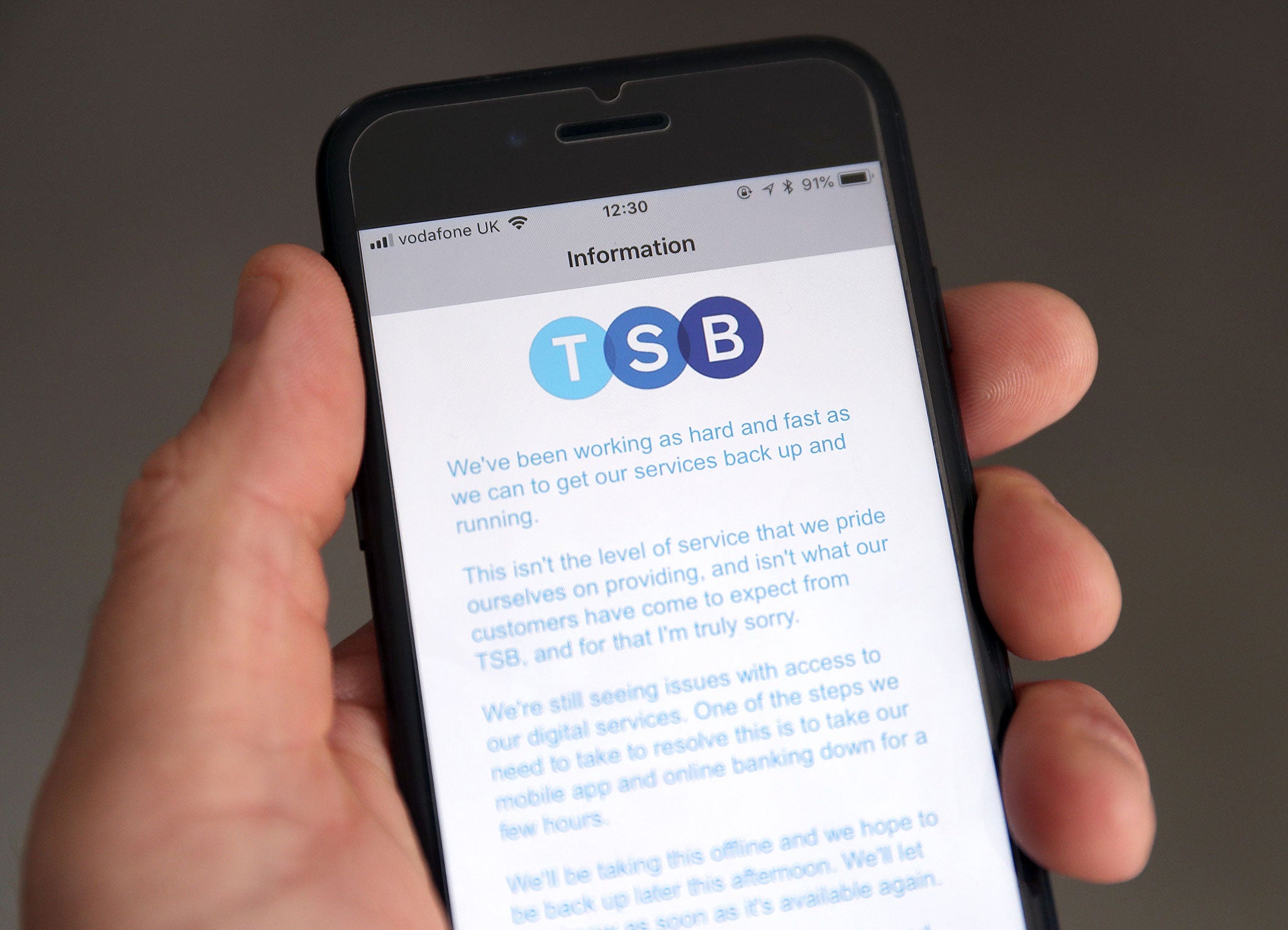TSB was an innovative pioneer of modern finance and its spirit should be remembered
We were mad to wreck the old Trustee Savings Bank structure, and the building societies too


Your support helps us to tell the story
From reproductive rights to climate change to Big Tech, The Independent is on the ground when the story is developing. Whether it's investigating the financials of Elon Musk's pro-Trump PAC or producing our latest documentary, 'The A Word', which shines a light on the American women fighting for reproductive rights, we know how important it is to parse out the facts from the messaging.
At such a critical moment in US history, we need reporters on the ground. Your donation allows us to keep sending journalists to speak to both sides of the story.
The Independent is trusted by Americans across the entire political spectrum. And unlike many other quality news outlets, we choose not to lock Americans out of our reporting and analysis with paywalls. We believe quality journalism should be available to everyone, paid for by those who can afford it.
Your support makes all the difference.What has happened to the Trustee Savings Bank is a disaster. But this current mess over TSB’s computer systems, while infuriating for its customers, is a relatively small glitch along a trail of catastrophe. The glitch will be fixed. What cannot be fixed is the transformation of one of the great innovative pioneers of modern finance into a mere subsidiary of a medium-size Spanish banking group.
If you are not familiar with the background, here is a quick sketch. In 1810 the Rev Henry Duncan, a minister in Ruthwell, near Dumfries in Scotland, founded the world’s first savings bank. Banks then were privately owned and for the rich. He created a bank for the poor.
The idea was simply that if people of modest means were encouraged to save, and did so in an institution that they collectively would own, the money would be invested in their behalf. And thanks to the wonders of compound interest, they could live comfortably in their old age.
That is what the TSB movement did for some 175 years. In the 1970s, the various banks in the movement were merged into a single entity: an understandable and probably sensible process.
Then began the path to catastrophe. In the rush to create more public listed companies in the 1980s it was converted into a plc, along with many building societies and some of the mutual life assurance groups.
Once you are a shareholder-owned listed company, you can be taken over. This is what happened to TSB, which was bought by Lloyds Bank in 1995. It was then merged with the Cheltenham & Gloucester Building Society, which Lloyds also took over – though at least the TSB brand name was retained, unlike that of the C&G.
Next, after the banking crash of 2007/8 and Lloyds’ rescue of HBOS, the European authorities forced Lloyds to divest the TSB element of the group. It was eventually floated off as a separate plc in 2014, only to be taken over after less than a year of independence by the Spanish Sabadell banking group.
I have nothing against Sabadell, though it was TSB’s effort to shift from the Lloyds computer system to the Spanish one that has gone so spectacularly wrong. If people want to keep their savings in a Spanish-owned bank, that’s up to them.
But there are three aspects of the whole saga that I find deeply troubling.
The first is that the name is misleading. I can understand why the bank wanted to keep the brand name, but it is not what it says on the tin. If you bank with Santander, you know it is a Spanish bank. But TSB now has nothing to do with its origins; it is just another foreign-owned commercial bank.
Second, we have probably been too open an economy to foreign interests, and certainly are more open than any other country on Earth. Some foreign owners have been wonderful stewards. The most obvious example is Tata and their rebuilding of Jaguar Land-Rover, and there are many others. (I should acknowledge here that The Independent is controlled by a Russian family.)
But the culture where everything in the country is up for sale is troubling. I am all for openness, but some reciprocity would be welcome. Indeed, I suspect that the world may be drifting towards greater economic nationalism, which would be troubling.
Third, we were mad to wreck the TSB movement and indeed the building societies too. The great Nationwide, plus some smaller ones, do carry on the building society tradition and more power to them. But remember what has been lost. Halifax, Abbey National, Alliance and Leicester, Cheltenham & Gloucester, and so on – all disappeared.
Had the old Trustee Savings Bank structure remained intact, there would not have been this mess now over transferring to a Spanish bank’s computer system. Instead we would have another effective and independent competitor to the regular banks.
So what’s to be done?
Well, if you don’t like the way your bank manages your money, you can, as they say, take your overdraft elsewhere. In any case, given these disastrous low interest rates, any savings plan should aim to put savings into assets that earn some sort of return.
So keep as little money in a bank as possible. There are and will be better options, particularly as technology develops. But more generally, we all – as individuals, as companies, as a country – need to think longer-term about the value of institutions.
We cannot recreate the old model of savings banks, but we can build on the spirit that led to their creation: ordinary people, though their savings, getting a bigger stake in society.
Join our commenting forum
Join thought-provoking conversations, follow other Independent readers and see their replies
Comments